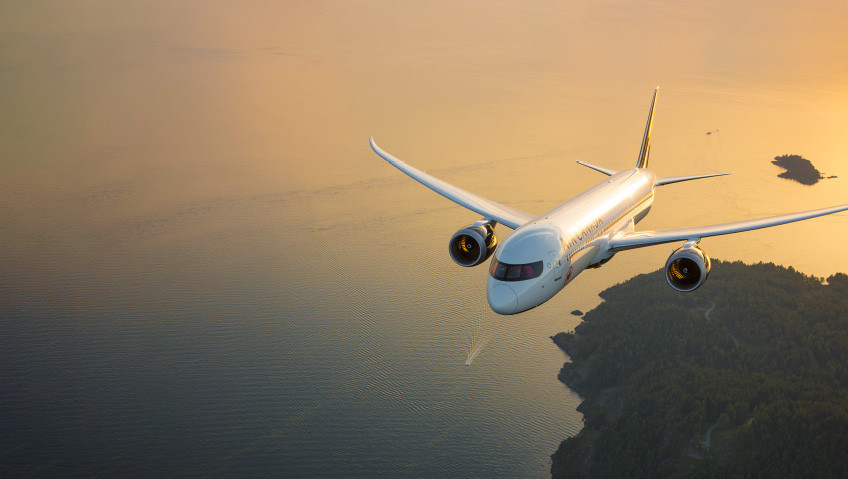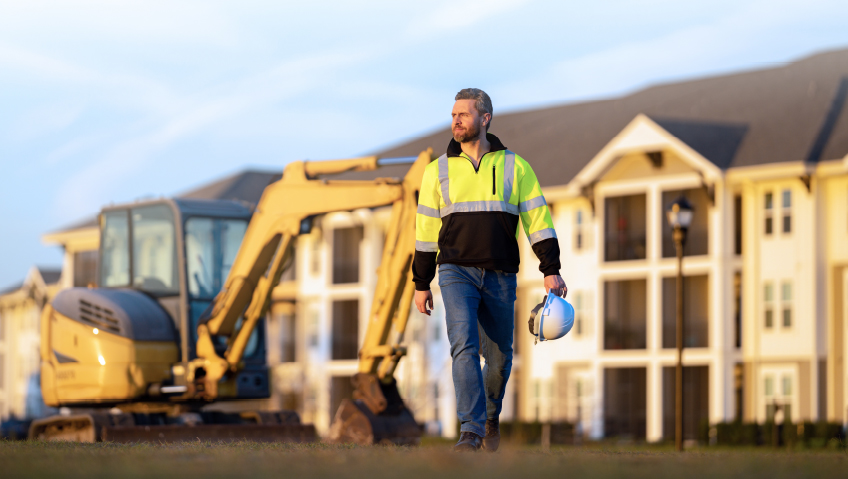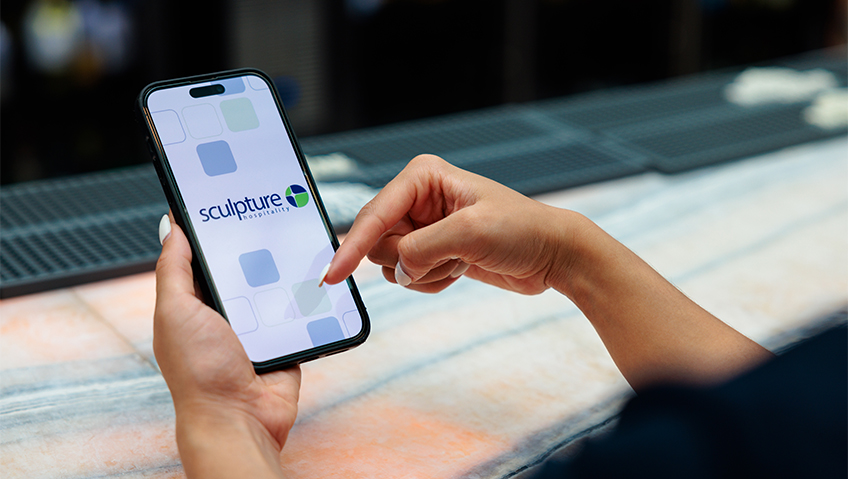“My ambition is to have this wonderful gift produce practical results for the future of commercial flying and for the women who may want to fly tomorrow’s planes.”
-Amelia Earhart
Aviation pioneer Amelia Earhart—who, in 1923 at the age of 26, became just the sixteenth woman in the world to earn a pilot’s license—went on to become the first woman and the first person to ever fly alone over the Pacific and Atlantic oceans, opening the road—or sky—for women who want to work in science and technology. One hundred years later, while much has changed in the world of aviation, women comprise only six percent of commercial pilots worldwide, a statistic Amelia would find disheartening.
Judy Cameron was once part of that group, and is seen as a trailblazer in Canadian aviation. At the age of 23 in 1978, Cameron was hired as Air Canada’s first female pilot. She was promoted to captain in 1997, and in 2010, she was the first female captain in Canada to fly the Boeing 777, the largest aircraft in Air Canada’s fleet. After logging 23,000 hours of flight time, she retired in 2015 and dedicated herself to helping other women succeed in the field she loves.
“When I was hired by Air Canada there weren’t very many female airline pilots. In fact, I hadn’t met any,” says Cameron. “I was the only girl in my aviation class at Selkirk College, and I was the only female pilot pretty much in every workplace I was at until much later when I signed on with Air Canada.”
While Rosella Bjornson was the first female airline pilot in Canada, Cameron’s hiring at Air Canada was national news and a pivotal achievement for her. “At the time I didn’t really think about being a trailblazer,” she says. “I just wanted to fly and Air Canada was a lifetime goal. Pretty much every pilot training in Canada wants a job with a major airline and Air Canada was it, so I was just over the moon when I got hired.”
It wasn’t until about 20 years later, when she became captain on the DC-9, that she was finally able to fly with other female pilots for the first time. “Up to that point the guys would say to me, ‘Oh, I’ve never flown with a woman, and I’d look at them and say, ‘Well, neither have I.’”
The company hired another woman pilot shortly after Cameron, and still has one of the higher percentages for female commercial pilots, she says. If she has her way, that number will continue to rise.
After receiving an award from the Northern Lights Aero Foundation—which celebrates and supports exceptional women with careers in aviation and aerospace—Cameron realized being a role model was crucial to bringing more women into the industry.
“Women need to have role models,” she says. “That’s part of the problem in trying to inspire women to get into these non-traditional fields; they just don’t see other women doing the job. They need to see it normalized to make them realize they can do it.”
After Cameron joined the board of Northern Lights about six years ago, she endeavoured to one day start her own scholarship for women in aviation. Once again Air Canada proved a valuable ally when it comes to inclusion, founding the Captain Judy Cameron Scholarship intended for young women who may not have the financial resources to pursue non-traditional aviation occupations such as commercial pilots or aircraft maintenance engineers. With an initial pledge of $20,000 from Air Canada each year for three years, which has since been extended, the Northern Lights Aero Foundation, which encourages and honours Canadian women in aviation and aerospace with mentorship, scholarships, a speaker’s bureau, a junior board, along with an annual award ceremony, administers the scholarship.
“Air Canada asked if I would like to start a scholarship, and they named it after me, which is one of the biggest honours of my life,” says Cameron.
To date, $80,000 has been awarded, with a commitment of $40,000 more for women who either want to be pilots or aircraft mechanics, and the recipient success stories are moving and compelling. In 2023, CAE partnered with Air Canada to double the value of the scholarship and the organizations were able to provide scholarships to eight deserving young women across Canada.
“My favourite part of the year is getting to call and tell them they’re receiving the scholarship,” says Cameron. “Some of them are absolutely speechless. I’ve had others that were crying on the phone. It’s been very emotional.”
As it costs upwards of $100,000 to undertake flight training from start to finish, Cameron is striving to get more sponsorship for future scholarships. “It’s the reason I participate in Northern Lights and the reason I’m so happy about the scholarships,” she says. “I feel it’s important to give back. And that’s one of the things we look for in the scholarship recipients; we don’t just look for high marks and achievement, we also look for a willingness to give back to other women to help them in their journey. That’s very, very important.”
As for her own mentors and guidance over the years, it’s another area where Cameron had to forge her own path.
“I have no aviation background,” she says. “When I first started with Air Canada, a lot of people asked me, ‘Is your dad a pilot?’ I was brought up by a single mom, I had a great education and we lived in a one-bedroom, tiny apartment in Vancouver with no TV and she slept on the sofa. But my mom was the person I looked up to. She was an example of a strong, independent woman.”
Cameron has had others who encouraged her, including a chief pilot for a small company that hired her when “no one else in their right mind would have hired a young female pilot back in those days,” and stresses the importance of mentorship in general. She also emphasizes the importance of girls being encouraged in STEM from a young age. Part of the Northern Lights outreach includes participating in events across Canada via Girls Take Flight in Oshawa and Girls Can Fly at the Waterloo Wellington Flight Centre; such events often feature volunteer pilots who take young girls up for their first flight in an airplane.
“For this particular career, that seems to be one of the pivotal points that really inspires them. Going up in an airplane is just so thrilling.”
It’s a sentiment Captain Murray Strom emphatically agrees with. As Senior Vice President, Flight Operations and Maintenance and a Boeing 777 pilot with Air Canada, Strom stresses the importance of encouraging women to become pilots and how best to inspire young girls to consider this career path.
“I spend a lot of time encouraging women to pursue a career in aviation, whether it’s pilots, mechanics, or anything in the aviation field. And we do this by supporting foundations like the Judy Cameron Scholarship, which is administered by the Northern Lights Aero Foundation —we’re very proud of that.”
Air Canada is also present at events across the country to raise awareness about the exciting careers in aviation for women, underrepresented youth, or post-secondary students. The airline hopes to inspire them to choose aviation as a career path and increase the number of underrepresented groups in education programs that are a pipeline for aviation careers. Strom, who is on the interview board in charge of pilot hiring and spends countless hours going through pilot résumés, reiterates the importance of early awareness and education for future flyers, particularly kids. “The biggest attraction to being a pilot was born from visits to the flight deck, seeing the pilots and saying, ‘wow, this is cool. This is what I want to do,’” says Strom.
While that option is unfortunately no longer available, Air Canada now exposes young people to aviation via Grade Nine Take Your Child to Work Day, bringing them into the hangar for mechanics, or taking them in the simulators, all with an eye to encouraging more girls and women in particular, a goal for both Strom and Air Canada.
“Women have always been in the industry back to the start of flying, back to Amelia Earhart. There have always been females in it, there just haven’t been enough females. And that’s where we have to care.”
Strom is starting to see a change, however, with six of Air Canada’s most recent new hire class of 40 being female, so the percentage is getting better. With pilots needed in Canada, the U.S., and worldwide, the key is to recruit from 100 percent of the population, he adds, something Air Canada is striving to accomplish.
“For me, personally, it’s probably the world’s best job,” he adds. “Every time I go flying, it’s my happy place. You get to see the world, you get to fly these big, wonderful airplanes, you get to meet all these interesting people. The job is extremely rewarding, and if you talk to any pilot that truly loves it, it’s the best job in the world.”
No one agrees with this more than six-year-old Rosie Meister, who, for the past year and a half, has stated she wants to be a pilot when she grows up. Upon learning on a recent family flight to Disney that the pilot was a man, dad Sean posted on social media expressing his daughter’s desire to one day meet a woman pilot.
“She’s a little girl and it’s really important for her to see herself in the people she looks up to, whether it’s sports, or what she wants to be when she grows up, or just who she wants to hang around with,” says Meister.
Meister’s post caught the attention of not only the aviation community but an Air Canada representative, who reached out to ask more about Rosie and her interest in aviation. Several emails later, Sean was astounded to find the organization was inviting Rosie to its flight training facility to see where pilots are trained, go in a simulator and, most importantly, meet some female pilots.
“That’s where they blew my socks off,” he says. “My wanting to share a little story about Rosie online turned into Air Canada showing what their true colors are and leaving me kind of speechless.”
Rosie and Sean flew to Toronto’s Pearson Airport during March Break, headed to the simulator building and spent two hours with Paula, one of Air Canada’s pilots. Paula greeted Rosie, took her through the facility and brought her into the simulator. There, Paula sat in the captain’s chair, Rosie sat in the first officer’s chair, and together they simulated a flight.
“Rosie got to ‘fly’ the plane, ask Paula questions and do what she always wanted to do, which was to see a woman as a pilot,” says Meister. “It was amazing. As a dad, all you want is for someone to support your kids and their dreams, and that’s what Air Canada did.”
Although Rosie found the experience a bit overwhelming at times—including the misconception she might have to fly a real plane—her dream of meeting a female pilot and learning about her job was nothing short of incredible. “She loved it. She thought Paula was such a nice person,” says Meister. “This was an amazing experience for her confidence. She loved the simulator and it just cemented [the interest] for her.” A video of Rosie’s experience can be viewed here: www.youtube.com/watch?v=t5ArgqG-dmA.
Of course, while Rosie could end up choosing any number of careers in the future, Sean Meister is forever grateful for the experience Air Canada provided. “For a little girl of that age to be told, ‘your dream can happen, and here’s how it can happen,’ you could really see the light switch go on for her,” he says. “It wasn’t just, ‘Oh, I hope I can be a pilot someday.’ [It was,] ‘I can be a pilot someday,’ and that’s a pretty monumental shift for a six year old. Air Canada made a difference. They made an impact.”
The future of aviation needs a lot of people and one of the groups it needs is women, he adds. “They’ve got a lot of work to do, but they’re putting the work in.”
Judy Cameron is one of those dedicated pilots putting that work in to change the future landscape of aviation. “I had a great career, and I’d like to give back and encourage other women because I realize now how important it is,” she says. “It would have been really nice when I was doing my training way back when to have had a female mentor.”
And because passengers at the airport were surprised to find she was a pilot right up to the day she retired, she will continue to foster the next generation of female pilots and aircraft engineers for years to come.
“It’s a fantastic career, and I think a lot of women would enjoy it,” she says. “It provides economic security, and there are not a lot of fields that provide the opportunity to get paid to see the world.”






